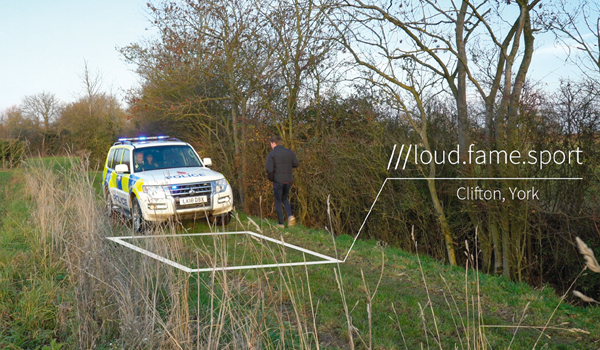Mobile transformation
How Cheshire Constabulary is giving officers on the front line the technology to tackle crime.
In the past few years, as policing has evolved, Cheshire Constabulary’s Information and Technology Department, led by Andy Robson, head of ICT, has worked tirelessly to build a new approach to mobile policing operations, with the benefits felt across the force.
In advance of Covid-19, and with one eye on the future, the force made the decision to migrate to Microsoft, not only on devices, but across its entire technology stack. Upgrading to the right devices has had a significant impact on the force’s ability to operate, with the impact felt on the lives of police officers and on the quality of work they have subsequently been able to deliver to the public.
As a result of Cheshire Constabulary’s move towards mobile policing operations before the pandemic, at the start of Covid-19 the force was already well-versed in how to operate remotely, with officers able to access, analyse and share information securely both in the office and on the front line.
Adopting devices capable of transforming the front line
Covering the areas of Cheshire East, Cheshire West, Chester, Halton and Warrington, Cheshire Constabulary is responsible for policing an area of 950 square miles and a population of just over one million.
Its mission is to deliver even safer communities for the whole of Cheshire, tackling crime and anti-social behaviour and delivering outstanding neighbourhood policing.
For officers on the front line, day-to-day working activities by their nature are diverse. Where in a single day an officer can be both making house calls to gather information and waiting in court to give evidence, working on the go is valuable and more often than not saves a great deal of time.
Cheshire Constabulary was adamant that officers would not be restricted by the technology available to them and in an environment where traditionally, accessing command and control systems would have had to happen from headquarters, the adoption of Microsoft Surface devices has meant that officers have been able to work from anywhere, using systems that were previously unavailable to them on the move.
By taking the decision to furnish every officer on the front line with a Surface Go, and for the more demanding roles, a Microsoft Surface Pro, Cheshire Constabulary provided all officers with a fully portable, desktop experience with access to all systems – “straight of the box”, overnight.
“We’ve seen the technology used within the force evolve over a number of years, but now with the Microsoft Surface Pro, I don’t think we have many officers that could live without that tablet,” explained Mr Robson.
“Microsoft technology has helped transform our work. Once our officers have a Surface device, they have everything they need ready to go straight out of the box.”
Providing Microsoft Surface Pros to frontline workers has also meant they have been able to access multiple other services on the go too. Adding to this capability, Cheshire Constabulary has also developed a mobile application suited to the Microsoft Surface Pro that gives officers the capability to handle everything from a PNC check to reviewing CCTV that may help look for a lost child. The technology, called PIPS (Predictive, Productive, Intelligent Policing System), which runs on the Microsoft Surface Pro, was developed internally to give officers the flexibility to do most, if not all, of their day-to-day work remotely.
“The icing on our technological capability is the PIPS application, which is designed so that it works for all officers on the Surface Pro and gives them access to a range of information systems on the go,” said Mr Robson.
Between the technological capability that comes with the devices, to innovative applications created by Cheshire Constabulary, the force says there is nothing an officer cannot now do in somebody’s house that they would have previously done back at the station.
Foundations for frontline policing
While advanced technology capability such as PIPS provides huge gains for the entire force, reliability and robustness of the devices officers are using is no less important. Battery power and information overload are two of the biggest challenges for police officers on the front line and being able to use a device all day knowing that it is not going to run out of power is essential.
“When officers have the ability to go out into the field, stay there, and still do their job without going back to the station – that’s really valuable,” said Mr Robson.
Security is also a major consideration, with the added benefit of Microsoft’s endpoint security and the ability to control devices remotely.
Where in the past officers were expected to keep daybooks on paper, they could often be lost or ruined, or left somewhere they should not be, whereas computers are locked down and provide a much higher level of security, so that officers always know where their notes are and who has access to them, said the force.
Portability and the importance of fast, reliable information
For the police, information is the most powerful resource any officer has available to them and being able to collect and process information quickly can make all the difference. Before the adoption of the new devices, processing information would typically happen back at the station. Technology such as fingerprint readers on tablets means that biometric data such as this can now be taken and analysed remotely. For example, by connecting a fingerprint reader to a Surface Go using the USB port, officers can connect directly with the Home Office database and scan for matches out in the field.
This has meant that where Cheshire Constabulary originally had 14 fingerprint readers, it now has 200 to 300 that can all be integrated seamlessly with the device the officer is already carrying.
Building public trust when using technology
With information collection so vital for police officers, being able to show the public that police officers have timely information that is helping support them and deal with issues effectively is essential in building trust between the force and the community.
Using information this way shows that the police are on top of the task at hand, with officers in control of situation, explained the force.
“Sharing access to that kind of information at an important point in time is game-changing because it immediately benefits the relationship between the police officer and the public, and people can see that we have everything under control,” said Mr Robson.
In cases where officers are dealing with missing persons, for example, being able to pull up an image of the subject quickly and reassure relatives that the police have all the information they need to begin the investigation builds trust.
Cheshire Constabulary says having access to this kind of information empowers officers when they are interacting with members of the public, and ultimately improves the relationship between the police force and the community it serves, whether that is “delivering outstanding neighbourhood policing, protecting the vulnerable or preventing crime and harm”.
“We’ve achieved real success by working with Microsoft to implement technology on the front line. What we need to focus on now is how the local force operates with the equipment it’s got going forward,” said Mr Robson.






